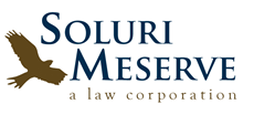Agenda
|
9:00 am – 9:45 am
Opening Remarks: UC Hastings Co-Chairs, Lauren Marshall & Olivia Molodanof Introductory Speaker: Dave Owen 9:45 am – 11:00 am
Panel 1: SGMA for All: Ensuring Equal Access to Clean, Affordable Groundwater (UC Davis) Panel 2: Groundwater Contamination: Are We Stuck With It? (USF) Break
11:15 am – 12:30 pm
Panel 3: Questions of Common Supply: SGMA Requirements for Interconnected Surface Water and Groundwater (Golden Gate University) Panel 4: New Developments in Tribal Water Rights: Agua Caliente & SGMA (Stanford) 12:30 pm - 1:30 pm
Lunch & Keynote Speakers: Felicia Marcus, Fran Pavley, and Richard Frank KEYNOTE VIDEO AVAILABLE HERE, courtesy of Gene Beley. Break
1:45 pm – 3:00 pm
Panel 5: The Elephant in the Room: Adjudication Under SGMA (McGeorge) Panel 6: Building a Strong Foundation: How GSA Structure Affects Transparency, Representation, and Participation (UC Berkeley) 3:15 - 5:00 pm
Reception |
Panel Descriptions and MCLE Resources
Introductory Lecture
Dave Owen
An overview introduction to California water law generally and SGMA more specifically.
An overview introduction to California water law generally and SGMA more specifically.
Panel 1: 9:45am - 11:00am
SGMA for All: Ensuring Equal Access to Clean, Affordable Groundwater
UC Davis School of Law
In 2012, California passed AB 685, making it the first state to legally recognize the human right to drinking water. Will we make good on this priority in the implementation of SGMA? How do we get safe and affordable drinking water to all Californians? What is fair to public and private interests in terms of access to underground basins/aquifers? Panelists will explore the barriers, competing needs and opportunities for equitable water management, and describe solutions for providing disadvantaged communities with clean, affordable groundwater.
In 2012, California passed AB 685, making it the first state to legally recognize the human right to drinking water. Will we make good on this priority in the implementation of SGMA? How do we get safe and affordable drinking water to all Californians? What is fair to public and private interests in terms of access to underground basins/aquifers? Panelists will explore the barriers, competing needs and opportunities for equitable water management, and describe solutions for providing disadvantaged communities with clean, affordable groundwater.
PanelistsJennifer Clary
Clean Water Action: Water Programs Manager Horacio Amezquita
Manager, San Jerardo Housing Cooperativ |
MCLE Materials
|
Kristin Dobbin
PhD Student, UC Davis Department of Environmental Science and Policy
PhD Student, UC Davis Department of Environmental Science and Policy
Sam Boland-Brien
Senior Engineer, State Water Resources Control Board
Senior Engineer, State Water Resources Control Board
Panel 2: 9:45am - 11:00am
Groundwater Contamination: Are We Stuck With It?
Groundwater Contamination: Are We Stuck With It?
University of San Francisco
Groundwater nitrate contamination is a major issue in California, particularly through the Central Valley, one of the most productive agricultural areas in the United States; however, production comes at a cost: nitrate contamination of drinking water sources. Elevated nitrate concentrations in groundwater are a concern not only for private well owners, but also for community service districts, and municipalities who rely on groundwater wells. Drinking water with a nitrate concentration greater than 10 mg/L NO3 -N can result in health effects such as low infant blood oxygen levels, miscarriages, and certain types of cancers. This panel will discuss the cause, effects, and remediation of elevated nitrate concentrations of groundwater in Central Valley, California.
Groundwater nitrate contamination is a major issue in California, particularly through the Central Valley, one of the most productive agricultural areas in the United States; however, production comes at a cost: nitrate contamination of drinking water sources. Elevated nitrate concentrations in groundwater are a concern not only for private well owners, but also for community service districts, and municipalities who rely on groundwater wells. Drinking water with a nitrate concentration greater than 10 mg/L NO3 -N can result in health effects such as low infant blood oxygen levels, miscarriages, and certain types of cancers. This panel will discuss the cause, effects, and remediation of elevated nitrate concentrations of groundwater in Central Valley, California.
Panel 3: 11:15am - 12:30pm
Questions of Common Supply: SGMA Requirements for Interconnected Surface Water and Groundwater
Questions of Common Supply: SGMA Requirements for Interconnected Surface Water and Groundwater
Golden Gate University
This panel will address the relationship between SGMA groundwater plans and various surface water issues such as surface flows, streams, water basins, and fisheries. The frequent hydrological connections between surface waters and groundwater leave in stream flows and fisheries highly affected by groundwater pumping and the SGMA. Panelists will discuss the structure of SGMA and how it addresses these water connections, particularly in relation to fisheries, the common supply doctrine, and the public trust doctrine. They will explain how to determine what is an undesirable result under SGMA using a proposed framework. These experts will also provide an overview of California law of surface water and groundwater rights, including the SGMA grandfather clause.
This panel will address the relationship between SGMA groundwater plans and various surface water issues such as surface flows, streams, water basins, and fisheries. The frequent hydrological connections between surface waters and groundwater leave in stream flows and fisheries highly affected by groundwater pumping and the SGMA. Panelists will discuss the structure of SGMA and how it addresses these water connections, particularly in relation to fisheries, the common supply doctrine, and the public trust doctrine. They will explain how to determine what is an undesirable result under SGMA using a proposed framework. These experts will also provide an overview of California law of surface water and groundwater rights, including the SGMA grandfather clause.
|
Alletta (Letty) Belin
Consultant, Alletta Belin Consulting LLC Kevin O'Brien (moderator) Partner, Downey Brand LLP Richard Frank Professor of Environmental Practice; Director, UC Davis School of Law's California Environmental Law & Policy Center Paul Stanton Kibel Water and Natural Resource Counsel, Water and Power Law Group Andy Sawyer Assistant Chief Counsel, State Water Resources Control Board |
MCLE Materials
|
Panel 4: 11:15am - 12:30pm
New Developments in Tribal Water Rights: Agua Caliente and SGMA
New Developments in Tribal Water Rights: Agua Caliente and SGMA
Stanford University
Groundwater will continue to be an increasingly important resource for Indian tribes in the arid western states, as water supplies shrink under the pressure of growing populations and the effects of climate change. With the U.S. Supreme Court’s recent announcement that it would not hear the appeal in the Agua Caliente case, the application of tribal reserved water rights to groundwater is settled. This panel will address current developments in tribal water rights, the interaction between SGMA and tribal water rights, and the challenge of ensuring that tribes can plan a responsible water future for themselves and future generations in the face of competing interests. Stanford Law School faculty will discuss interaction between existing tribal land use laws and SGMA and the implications of the Agua Caliente decision beyond SGMA.
Groundwater will continue to be an increasingly important resource for Indian tribes in the arid western states, as water supplies shrink under the pressure of growing populations and the effects of climate change. With the U.S. Supreme Court’s recent announcement that it would not hear the appeal in the Agua Caliente case, the application of tribal reserved water rights to groundwater is settled. This panel will address current developments in tribal water rights, the interaction between SGMA and tribal water rights, and the challenge of ensuring that tribes can plan a responsible water future for themselves and future generations in the face of competing interests. Stanford Law School faculty will discuss interaction between existing tribal land use laws and SGMA and the implications of the Agua Caliente decision beyond SGMA.
|
Heather Whiteman Runs Him
Staff Attorney, Native American Rights Fund Robert Anderson Professor of Law; Director, University of Washington School of Law's Native American Center Barton H. "Buzz" Thompson, Jr. Professor of Natural Resources Law, Stanford University; Senior Fellow, Woods Institute for the Environment |
MCLE Materials
|
Panel 5: 1:45pm - 3:00pm
The Elephant in the Room: Adjudication Under SGMA
The Elephant in the Room: Adjudication Under SGMA
University of the Pacific, McGeorge School of Law
This panel will discuss the courts’ role in balancing the need to achieve “sustainable yield” under SGMA and respecting the rights of groundwater pumpers. SGMA incorporates the existing framework for water rights in California, assuring that nothing in SGMA will alter surface or groundwater rights under the common law. However, SGMA was created to prevent the “undesirable results” caused by unmanaged groundwater pumping. This begs the question: how will these two promises be reconciled? Subject to change, this panel will discuss several related sub-topics: Assembly Bill 1390 and Senate Bill 226, SGMA in light of the Long Valley decision (1979), how basins adjudicated under SGMA will coalesce with bordering basins, conflicts between Groundwater Sustainability Plans and water rights, conflicts between technical data and court decisions concerning “sustainable yield”, and separation of powers between Groundwater Sustainability Agencies and the courts. McGeorge maintains connections with the following list of potential panelists. All are experts in the field and represent different interests that will provide for engaging discussion and debate.
This panel will discuss the courts’ role in balancing the need to achieve “sustainable yield” under SGMA and respecting the rights of groundwater pumpers. SGMA incorporates the existing framework for water rights in California, assuring that nothing in SGMA will alter surface or groundwater rights under the common law. However, SGMA was created to prevent the “undesirable results” caused by unmanaged groundwater pumping. This begs the question: how will these two promises be reconciled? Subject to change, this panel will discuss several related sub-topics: Assembly Bill 1390 and Senate Bill 226, SGMA in light of the Long Valley decision (1979), how basins adjudicated under SGMA will coalesce with bordering basins, conflicts between Groundwater Sustainability Plans and water rights, conflicts between technical data and court decisions concerning “sustainable yield”, and separation of powers between Groundwater Sustainability Agencies and the courts. McGeorge maintains connections with the following list of potential panelists. All are experts in the field and represent different interests that will provide for engaging discussion and debate.
|
The Honorable Ronald Robie
Associate Justice, Third District of the California Courts of Appeal Eric Garner Managing Partner, Best Best & Krieger LLP Christina Babbitt Senior Manager, CA Groundwater Program at Environmental Defense Fund |
Panel 6: 1:45pm - 3:00pm
Building a Strong Foundation: How GSA Structure Affects Transparency, Representation, and Participation
Building a Strong Foundation: How GSA Structure Affects Transparency, Representation, and Participation
UC Berkeley School of Law
SGMA required Groundwater Sustainable Agencies (GSAs) to form in the State’s high and medium priority basins and subbasins. Now, these newly formed GSAs are developing plans to help them achieve sustainable groundwater management. This panel will examine how GSA structure affects transparency, representation, and participation, using case studies of SGMA implementation in Butte County where many GSAs are managing the same subbasins, and in the Tulare Lake Basin, where advocates are working to ensure that GSAs address EJ communities’ needs in their groundwater sustainability plans.
SGMA required Groundwater Sustainable Agencies (GSAs) to form in the State’s high and medium priority basins and subbasins. Now, these newly formed GSAs are developing plans to help them achieve sustainable groundwater management. This panel will examine how GSA structure affects transparency, representation, and participation, using case studies of SGMA implementation in Butte County where many GSAs are managing the same subbasins, and in the Tulare Lake Basin, where advocates are working to ensure that GSAs address EJ communities’ needs in their groundwater sustainability plans.
|
Nell Green Nylen (moderator)
Senior Research Fellow, Wheeler Water Institute, Center for Law, Energy & the Environment Nicole Kuenzi Staff Counsel, State Water Resources Control Board Paul Gosselin Director, Butte County Department of Water and Resource Conservation Adriana Renteria Regional Water Management Coordinator, Community Water Center |
MCLE Materials
|
SYMPOSIUM CHAIRS
Lauren Marshall
Lauren Marshall is a third-year law student with an environmental law concentration at UC Hastings. She served as a panel chair for last year’s symposium and currently works with Olivia Molodanof as Co-Chair of the 15th annual symposium. She became passionate about water supply issues as a Sacramento native and during her studies in Environmental Management at Cal Poly San Luis Obispo. Her law school internships have included Gross & Klein LLP, the Center for Biological Diversity, and the California Coastal Commission. She serves as a Senior Editor for the Hastings Environmental Law Journal, former president of the Hastings Environmental Law Association, and competes on Hastings’ team at the National Environmental Law Moot Court Competition.
Lauren Marshall is a third-year law student with an environmental law concentration at UC Hastings. She served as a panel chair for last year’s symposium and currently works with Olivia Molodanof as Co-Chair of the 15th annual symposium. She became passionate about water supply issues as a Sacramento native and during her studies in Environmental Management at Cal Poly San Luis Obispo. Her law school internships have included Gross & Klein LLP, the Center for Biological Diversity, and the California Coastal Commission. She serves as a Senior Editor for the Hastings Environmental Law Journal, former president of the Hastings Environmental Law Association, and competes on Hastings’ team at the National Environmental Law Moot Court Competition.
Olivia Molodanof
Olivia Molodanof is a third year law student at UC Hastings. She was a Panel Chair for last year's Symposium and is excited to be chairing the event this year with Lauren Marshall. She graduated from Cal Poly, San Luis Obispo with a B.S. in Agricultural Business. Olivia is the Executive Manager for the Hastings Environmental Law Journal and a member of the Alternative Dispute Resolution Team. She recently published an article in the California Water Law Journal regarding SGMA and the Paso Robles Groundwater Basin. This past summer, Olivia was a summer associate at Hunton Andrews Kurth and this semester she is working as a law clerk with Shute Mihaly & Weinberger. Olivia is very interested in the intersection of environmental policy and human rights.
Olivia Molodanof is a third year law student at UC Hastings. She was a Panel Chair for last year's Symposium and is excited to be chairing the event this year with Lauren Marshall. She graduated from Cal Poly, San Luis Obispo with a B.S. in Agricultural Business. Olivia is the Executive Manager for the Hastings Environmental Law Journal and a member of the Alternative Dispute Resolution Team. She recently published an article in the California Water Law Journal regarding SGMA and the Paso Robles Groundwater Basin. This past summer, Olivia was a summer associate at Hunton Andrews Kurth and this semester she is working as a law clerk with Shute Mihaly & Weinberger. Olivia is very interested in the intersection of environmental policy and human rights.
UC Hastings WLS Committee
Holly Locke
Holly Locke is the co-vice chair of the Water Law Symposium, specializing in website updates and maintenance. Holly is interested in anything and everything environmental law, and recently took a deep dive into land use law and policy during her 1L summer internship at the Governor’s Office of Planning and Research in Sacramento. Before law school, Holly earned two bachelor’s degrees: one in International Relations from UC Davis and the other in Journalism: Public Relations from the University of Oregon, and she currently takes any chance she can get to go camping in the Tahoe National Forest or enjoy the beaches of Lake Tahoe.
Holly Locke is the co-vice chair of the Water Law Symposium, specializing in website updates and maintenance. Holly is interested in anything and everything environmental law, and recently took a deep dive into land use law and policy during her 1L summer internship at the Governor’s Office of Planning and Research in Sacramento. Before law school, Holly earned two bachelor’s degrees: one in International Relations from UC Davis and the other in Journalism: Public Relations from the University of Oregon, and she currently takes any chance she can get to go camping in the Tahoe National Forest or enjoy the beaches of Lake Tahoe.
Kelilah Federman
Kelilah Federman is a second-year law student at UC Hastings College of the Law. She serves as a Staff Editor of the Hastings Environmental Law Journal, Treasurer for the Hastings Environmental Law Association, and Vice President of the Hastings Green Campus Taskforce. During her 1L summer, Kelilah worked in Washington D.C. as a law clerk for Oceana. Kelilah is pursuing the Environmental Law Concentration and is passionate about marine and freshwater ecosystem conservation.
Kelilah Federman is a second-year law student at UC Hastings College of the Law. She serves as a Staff Editor of the Hastings Environmental Law Journal, Treasurer for the Hastings Environmental Law Association, and Vice President of the Hastings Green Campus Taskforce. During her 1L summer, Kelilah worked in Washington D.C. as a law clerk for Oceana. Kelilah is pursuing the Environmental Law Concentration and is passionate about marine and freshwater ecosystem conservation.
Kelsey Galantich
Kelsey is interested in international environmental law. She grew up near Virginia Beach, Virginia, where she always concerned about the effects of climate change on the Chesapeake Bay and our oceans. She attended the University of Virginia for her Bachelor’s degree, where she double-majored in French Literature and Global Environmental Sustainability. Prior to moving to San Francisco, she lived in Cayenne, French Guiana where she was an English and French language teaching assistant. She plans to learn as much as she can about environmental law in order to continue to help save the bay!
Kelsey is interested in international environmental law. She grew up near Virginia Beach, Virginia, where she always concerned about the effects of climate change on the Chesapeake Bay and our oceans. She attended the University of Virginia for her Bachelor’s degree, where she double-majored in French Literature and Global Environmental Sustainability. Prior to moving to San Francisco, she lived in Cayenne, French Guiana where she was an English and French language teaching assistant. She plans to learn as much as she can about environmental law in order to continue to help save the bay!
Kaitlin Sherber
Kaitlin Sheber is a second-year law student at UC Hastings College of the Law where she is pursuing her interest in International Environmental Law. She is originally from the Chicago area, and graduated from Loyola University Chicago with a degree in Anthropology. Over the summer, Kaitlin worked as a research assistant for the Legal Writing Department at UC Hastings. This year, she is serving as a Staff Editor on the Hastings Environmental Law Journal and as a TA for Legal Writing classes. In the future, Kaitlin plans to work in the field of Environmental Justice.
Kaitlin Sheber is a second-year law student at UC Hastings College of the Law where she is pursuing her interest in International Environmental Law. She is originally from the Chicago area, and graduated from Loyola University Chicago with a degree in Anthropology. Over the summer, Kaitlin worked as a research assistant for the Legal Writing Department at UC Hastings. This year, she is serving as a Staff Editor on the Hastings Environmental Law Journal and as a TA for Legal Writing classes. In the future, Kaitlin plans to work in the field of Environmental Justice.
Panel Chairs
UC Davis School of Law
Justine Massey
Born and raised in California, Justine has also been shaped by traveling and living in South America. As a co-recipient of the Beagle II Award from the Stanford Anthropology Department, she produced 3D photos (stereographs) documenting research on medicinal practices in various bioregions of Perú. After receiving her BA from Stanford in 2011, she continued her studies in Buenos Aires, Argentina. The people and landscapes inspired her to advocate for our natural systems and worldwide communities. Justine is currently pursuing her law degree at King Hall, UC Davis School of Law. Her focus is in environmental law, in particular water law and the human right to water. She has interned at Community Water Center and CAL FIRE.
Born and raised in California, Justine has also been shaped by traveling and living in South America. As a co-recipient of the Beagle II Award from the Stanford Anthropology Department, she produced 3D photos (stereographs) documenting research on medicinal practices in various bioregions of Perú. After receiving her BA from Stanford in 2011, she continued her studies in Buenos Aires, Argentina. The people and landscapes inspired her to advocate for our natural systems and worldwide communities. Justine is currently pursuing her law degree at King Hall, UC Davis School of Law. Her focus is in environmental law, in particular water law and the human right to water. She has interned at Community Water Center and CAL FIRE.
Peter Jansen
Peter Jansen is passionate about the right to clean water for the sake of humanity and all natural ecosystems. He chose to learn environmental law in California because of its progressive, forward-thinking regulations, which he believes are direly needed in light of federal stances on climate change and related issues.
Peter Jansen is passionate about the right to clean water for the sake of humanity and all natural ecosystems. He chose to learn environmental law in California because of its progressive, forward-thinking regulations, which he believes are direly needed in light of federal stances on climate change and related issues.
University of the Pacific, McGeorge School of Law
Kathleen Finnigan
Kathleen Finnigan is a second-year law student at University of the Pacific McGeorge School of Law. She is from Fairfield, California and received her B.A. in Political Science from UC Davis in 2016. Before attending law school, Kathleen worked for the California State Senate and assisted her office on natural resources and water policy. She is currently a staff writer for The University of the Pacific Law Review where she is working on an article regarding Prop 218 and SGMA. She also serves on the boards for Water Law Society and Environmental Law Society.
Kathleen Finnigan is a second-year law student at University of the Pacific McGeorge School of Law. She is from Fairfield, California and received her B.A. in Political Science from UC Davis in 2016. Before attending law school, Kathleen worked for the California State Senate and assisted her office on natural resources and water policy. She is currently a staff writer for The University of the Pacific Law Review where she is working on an article regarding Prop 218 and SGMA. She also serves on the boards for Water Law Society and Environmental Law Society.
Kevin Bursey
Kevin Bursey is a third-year law student at University of the Pacific, McGeorge School of Law. He is from Madera County and graduated from California State University, Sacramento with a B.A. in Government. In college, Kevin worked in the California State Assembly and represented Sacramento State at the National Model United Nations Conference in New York. He has since clerked for Westlands Water District as well as a full-service law firm in Kings County. Now, Kevin serves as a board member of McGeorge’s Water Law Society and works at a water law firm in Sacramento. He will graduate law school with a certificate in Environmental Law.
Kevin Bursey is a third-year law student at University of the Pacific, McGeorge School of Law. He is from Madera County and graduated from California State University, Sacramento with a B.A. in Government. In college, Kevin worked in the California State Assembly and represented Sacramento State at the National Model United Nations Conference in New York. He has since clerked for Westlands Water District as well as a full-service law firm in Kings County. Now, Kevin serves as a board member of McGeorge’s Water Law Society and works at a water law firm in Sacramento. He will graduate law school with a certificate in Environmental Law.
Golden Gate University School of Law
Daniel Santos
Daniel Santos is currently a 3L at Golden Gate University School of Law. He loves to hike, exercise, and read books by Malcolm Gladwell or books regarding social science issues.
Daniel Santos is currently a 3L at Golden Gate University School of Law. He loves to hike, exercise, and read books by Malcolm Gladwell or books regarding social science issues.
Jessica Jandura
Jessica Jandura is a second year environmental law scholar at Golden Gate University School of Law. She is a writer for GGU’s Environmental Law Journal, a competitor for GGU’s Environmental Moot Court Team, and this past fall she interned for the Sierra Club’s Environmental Law Program. She received her MA in Applied Human Rights from the University of York, with a focus on community based adaptation to climate change and rights based approaches to sustainable development. She earned her BAs in International Studies and Political Science with a minor in Conflict Resolution from Loyola University Chicago. After graduation, Jessica plans to continue to work towards her goal of bridging the gaps between environmental laws and human rights.
Jessica Jandura is a second year environmental law scholar at Golden Gate University School of Law. She is a writer for GGU’s Environmental Law Journal, a competitor for GGU’s Environmental Moot Court Team, and this past fall she interned for the Sierra Club’s Environmental Law Program. She received her MA in Applied Human Rights from the University of York, with a focus on community based adaptation to climate change and rights based approaches to sustainable development. She earned her BAs in International Studies and Political Science with a minor in Conflict Resolution from Loyola University Chicago. After graduation, Jessica plans to continue to work towards her goal of bridging the gaps between environmental laws and human rights.
L. Victoria Wang
L. Victoria Wang is a 2L at GGU School of Law. Prior to law school, she worked in the healthcare industry and dedicated her time volunteering for local nonprofit health organizations. Currently, Victoria serves on the City of Berkeley Community Health Commission. Through her law degree, Victoria hopes to combine law, policy, and management to pursue a career in health law and water law. She holds a B.A. from UC Berkeley and an MPA in Health Policy and Management from NYU.
L. Victoria Wang is a 2L at GGU School of Law. Prior to law school, she worked in the healthcare industry and dedicated her time volunteering for local nonprofit health organizations. Currently, Victoria serves on the City of Berkeley Community Health Commission. Through her law degree, Victoria hopes to combine law, policy, and management to pursue a career in health law and water law. She holds a B.A. from UC Berkeley and an MPA in Health Policy and Management from NYU.
UC Berkeley School of Law
Aaron Lee
Aaron Lee is a third-year law student at UC Berkeley School of Law. He is a registered civil engineer in California and worked in public finance prior to law school. For fall 2018, he is in Washington D.C. interning at the International Finance Corporation, the private investment arm of the World Bank Group. Aaron is interested in infrastructure finance and development and will be joining the Global Projects group at Baker Botts L.L.P. in San Francisco following graduation.
Aaron Lee is a third-year law student at UC Berkeley School of Law. He is a registered civil engineer in California and worked in public finance prior to law school. For fall 2018, he is in Washington D.C. interning at the International Finance Corporation, the private investment arm of the World Bank Group. Aaron is interested in infrastructure finance and development and will be joining the Global Projects group at Baker Botts L.L.P. in San Francisco following graduation.
Taylor Wetzel
Taylor Wetzel is a third-year law student at U.C. Berkeley School of Law. She is originally from El Dorado Hills, CA, and received a BA in Political Science, option in Legal Studies from California State University, Chico. Taylor currently serves as the Senior Currents Editor of Ecology Law Quarterly, and is the President of the Environmental Law Society, Co-President of the Sustainability Team at Berkeley Law, and a member of the Boalt Hall Women’s Association. Last summer, she interned at the Natural Resources Defense Council. Taylor is pursuing an Environmental Law Certificate, and is interested in water rights allocation and curtailment and the evolving Sustainable Groundwater Management Act.
Taylor Wetzel is a third-year law student at U.C. Berkeley School of Law. She is originally from El Dorado Hills, CA, and received a BA in Political Science, option in Legal Studies from California State University, Chico. Taylor currently serves as the Senior Currents Editor of Ecology Law Quarterly, and is the President of the Environmental Law Society, Co-President of the Sustainability Team at Berkeley Law, and a member of the Boalt Hall Women’s Association. Last summer, she interned at the Natural Resources Defense Council. Taylor is pursuing an Environmental Law Certificate, and is interested in water rights allocation and curtailment and the evolving Sustainable Groundwater Management Act.
Chelsea Mitchell
Chelsea Mitchell is a first-year student at Berkeley Law. She is a member of the Ecology Law Quarterly, Environmental Law Society, and Karuk-Berkeley Collaborative Natural Resources team. Chelsea received her B.A. in Political Science from Haverford College. Before law school, Chelsea spent five years working on local food systems development projects across the U.S. and sustainable agriculture policy in California. She is particularly interested in the intersection of water law, climate change mitigation, and food systems issues.
Chelsea Mitchell is a first-year student at Berkeley Law. She is a member of the Ecology Law Quarterly, Environmental Law Society, and Karuk-Berkeley Collaborative Natural Resources team. Chelsea received her B.A. in Political Science from Haverford College. Before law school, Chelsea spent five years working on local food systems development projects across the U.S. and sustainable agriculture policy in California. She is particularly interested in the intersection of water law, climate change mitigation, and food systems issues.
Stanford University
Sarah Rowan
Sarah Rowan was born and raised in Upstate New York, just outside of Albany. In 2016 she graduated from Duke University, where she studied public policy, environmental science, and economics. After spending the summer on the true best coast, she drove from New York to California to start 1L. She is a joint JD/MS student in Environment and Resources, focusing on climate and freshwater. This past winter, she had an amazing experience with ~team 3~ in the Environmental Law Clinic. She split her 2L summer between the Sierra Club, an environmental nonprofit in Oakland, and Shute Mihaly, a private public interest law firm in San Francisco that focuses on land use, local government, and environmental issues. She is a research assistant for a project on groundwater at Water in the West. She has also interned at NRDC and the California Energy Commission during her time at SLS. After clerking, she plans to pursue a career in public interest environmental litigation. While not in class, Sarah is most likely road tripping around California, rock climbing, or watching Friends.
Sarah Rowan was born and raised in Upstate New York, just outside of Albany. In 2016 she graduated from Duke University, where she studied public policy, environmental science, and economics. After spending the summer on the true best coast, she drove from New York to California to start 1L. She is a joint JD/MS student in Environment and Resources, focusing on climate and freshwater. This past winter, she had an amazing experience with ~team 3~ in the Environmental Law Clinic. She split her 2L summer between the Sierra Club, an environmental nonprofit in Oakland, and Shute Mihaly, a private public interest law firm in San Francisco that focuses on land use, local government, and environmental issues. She is a research assistant for a project on groundwater at Water in the West. She has also interned at NRDC and the California Energy Commission during her time at SLS. After clerking, she plans to pursue a career in public interest environmental litigation. While not in class, Sarah is most likely road tripping around California, rock climbing, or watching Friends.
University of San Francisco School of Law
Dillon Itri
Dillon Itri is a 2L. He received his undergraduate degree from the University of San Diego in Environmental Science. After graduating from USD, Dillon worked as an Environmental Scientist at a compliance firm for about a year and then worked as an Environmental Compliance Specialist at a hazardous waste transportation company. It was during the latter half of his career as an Environmental Compliance Specialist that he realized he wanted to go to law school to help make a difference in the Environmental field. This past summer, Dillon worked as a Law Clerk at the United States Environmental Protection Agency in Seattle, Washington. During his time at the EPA, Dillon worked on a variety of research projects, drafted memorandums, wrote notice of violations, and even drafted several complaints under the supervision of an attorney.
Dillon Itri is a 2L. He received his undergraduate degree from the University of San Diego in Environmental Science. After graduating from USD, Dillon worked as an Environmental Scientist at a compliance firm for about a year and then worked as an Environmental Compliance Specialist at a hazardous waste transportation company. It was during the latter half of his career as an Environmental Compliance Specialist that he realized he wanted to go to law school to help make a difference in the Environmental field. This past summer, Dillon worked as a Law Clerk at the United States Environmental Protection Agency in Seattle, Washington. During his time at the EPA, Dillon worked on a variety of research projects, drafted memorandums, wrote notice of violations, and even drafted several complaints under the supervision of an attorney.
Beth Ginise
Beth is a third-year student at the University of San Francisco School of Law. She is the President of USF’s Environmental Law Student and Alumni Society and served last year as the Career Development Chair and Water Law Symposium Chair. Beth received her B.A. from Pitzer College in Political Science and Environmental Studies. This past summer, Beth interned with the Office of Chief Counsel of the California Water Boards. During the fall semester, she served as a legal intern for the San Francisco Public Defender’s Office and as a legal intern for Hicks Law. Beth will graduate with a Public Interest Law Certificate with honors and plans to pursue a career focused on environmental justice, ensuring that all people have equal access to clean water.
Beth is a third-year student at the University of San Francisco School of Law. She is the President of USF’s Environmental Law Student and Alumni Society and served last year as the Career Development Chair and Water Law Symposium Chair. Beth received her B.A. from Pitzer College in Political Science and Environmental Studies. This past summer, Beth interned with the Office of Chief Counsel of the California Water Boards. During the fall semester, she served as a legal intern for the San Francisco Public Defender’s Office and as a legal intern for Hicks Law. Beth will graduate with a Public Interest Law Certificate with honors and plans to pursue a career focused on environmental justice, ensuring that all people have equal access to clean water.
Thank You to Our Sponsors
For more information on sponsorship opportunities, contact [email protected]
Panel Sponsors
Symposium Sponsors
Reception Sponsors
Advertising Sponsor
Additional Sponsors












